Vision and ambition are the defining characteristics of Itasca Wines, which is on track to become the biggest contract winemaking business in the country – just five years after launching.
Itasca Wines, which also produces its own award-winning wines under the Penn Croft label, opened for business at Crondall on the Surrey/Hampshire border in 2020 and is now constructing a second winery, this one perfectly sited close to Maldon, in Essex’s wine-friendly Crouch Valley.
The two facilities will allow Itasca to process 2,000 tonnes of grapes each autumn, a capacity which long-term commercial director and now main board member John Wilkins (“I’ve done everything over the past five years except make the wine”) said would make it easily the biggest contract winemaker in the UK.
The vision and ambition comes from the unstoppable Malcolm Walker, founder and chief executive of Itasca Wines, which recently went from being a private company to a public limited one (PLC) to give it more flexibility in raising funds to expand still further. “It meant undergoing rigorous checks and spending a fortune, but it was right for the business,” Malcolm said.
As John explained: “It’s been a very, very exciting ride over the past five years.” That exciting ride has included not only making wine for a number of big-name vineyards and for Penn Croft, but proving a full supply and installation service through its Itasca Technical Services division and moving into wine tourism with the opening of a cellar door at Crondall.
As if that wasn’t enough growth in just five years, the business has now taken on a grade II* listed building at Cranborne in Dorset which dates back to 1730, and is turning it into an upmarket ‘wine hotel’ destination.
Malcolm’s carefully selected team has also grown significantly, with the initial four-strong setup having expanded to 33 full-time staff, with the most recent new signing, James Lambert, coming on board to head up brand development and overseeing the production of ‘white label’ wines for a major UK supermarket.
Fellow founder and former director Simon Porter, whose Penn Croft Farm was the site of the company’s original planting in 2018, has officially retired but still looks after the vineyards and takes an active interest in the venture he helped get out of the ground.
John Wilkins recalled that that first planting was a hint of what was to come. “In 2018 Malcolm said he was going to plant some vines at Penn Croft, and I didn’t think any more about it,” he said. “Then in 2019 he showed me the vines in the ground, and I realised that he hadn’t actually registered them.”
John registered the new vineyard and found a buyer for the grapes and has since been closely involved in the whirlwind growth of Itasca Wines. “Malcolm has idea after idea and just keeps moving forward – I help dot the ‘is’ and cross the ‘ts’,” he said. “You need to be able to move quickly in this business and that’s something Malcolm excels at.”
The excitement around Itasca Wines also inspired the newest member of the team, James Lambert, who had just left Lyme Bay Vineyard, where he had been managing director for the past nine years, to join Itasca, where his role is to build the company’s own brand wines and develop new opportunities such as developing wines for supermarkets “to hit a particular style and usually a low price point”.
He went on: “These are really exciting times for wine and for Itasca. It was Malcolm’s vision that enticed me to join. There is real ambition here.”
Central to the success of Penn Croft and the contract winemaking business is winemaker Ben Smith, who is also general manager of the operation at Crondall.
With the new winery in Essex now taking shape, Ben has been joined by two assistant winemakers from South Africa, Den’e Louw and Annemarie Fourie. “Ben will be moving up to become executive winemaker, with Den’e taking on day-to-day responsibility for the Hampshire operation and Annemarie moving to Maldon in September 2026,” Malcolm explained. Operations director Kat Cran-Crombie is another vital member of the team, working closely with Ben.
While the planning process delayed the start of work on the Essex winery, building is now well underway, with the custom-designed facility due to be ready to make its first wine following the 2026 harvest and focusing uniquely on still wines.
The Hampshire winery opened in September 2020 despite the Covid-19 pandemic and crushed 50 tonnes of grapes in its first harvest. In 2025 Itasca Wines is set to crush more than 1,000 tonnes at Crondall delivered from 38 vineyards. “And that’s only counting parcels bigger than five acres,” Malcolm added.
Itasca Wines crushes between 50 and 100 tonnes of grapes for each of its five biggest customers, turning them into what are often award-winning wines. “We have lots of gold, silver and bronze medal winners in our stable,” Malcolm commented.
The company’s own brand Penn Croft wine is made from the grapes planted by Malcolm in 2018 plus those grown at Jenkyn’s Place, a vineyard planted in 2006 which Itasca Wines has leased since 2021. “In total we have around 46 acres under vine,” Malcolm said.
To date, the winery has made 10,000 bottles of Penn Croft wine each year, all sold through the website and at the cellar door. After sell-out success over the past three years, head winemaker Ben plans to increase production this year, while James hinted that a new in-house label may also be on the cards.
As well as own label and contract winemaking, the winery provides a disgorging service for vineyards, and is also the UK’s sole importers of yeast, stabilisers and chemicals from Italian brand Enartis, supplying around 85% of the country’s wineries.
“Enartis came to us because it wanted to work with a growing company,” said Malcolm. “We were happy to partner with them because it helped us develop good relationships with wineries around the country.”
Enartis is just one of the well-known product ranges supplied by Itasca Technical Services, which offers a full supply and installation service to wineries across the UK.
The technical division was set up following a chance meeting at the 2021 Vineyard & Winery Show, when Malcolm, who was looking for an eight-tonne press for the winery at Penn Croft, chatted to representatives from German manufacturer Scharfenberger.
He was invited to Germany to visit the plant, and after some serious discussions about how they could work together, the German company suggested that if Itasca Wines was interested in setting up a distribution company, Scharfenberger would give the business the sole UK import licence.
Other manufacturers and suppliers were quick to approach the new company, with the result that Itasca Technical Services can provide and install everything a winery needs, from tanks and presses, agitators, filters and pumps to bottling and labelling equipment, additives and chemicals.
The company also has a UK import agreement with Sraml, the Slovenia-based food processing equipment supplier which specialises in manufacturing wine equipment and juice and cider-making products, including reception equipment, destemmers and crushers, pumps, presses and bottling lines. Itasca Technical Services also supplies products from suppliers including Steroglass and Oculyze.
Sales director John Simmons heads up the division and is supported by two engineers who handle winery installations. Chief engineer Martin Smith and female engineer Maddi Nippard have installed around half of the 70 Scharfenberger presses currently operating in the UK.
Servicing is another important area of work, with the company offering a set price service package but also being on hand to deal with emergency breakdowns or ad hoc service requests. With harvest this year looking set to happen in mid-September rather than October/November, the team is currently busy making sure customers’ presses and tanks are ready for the task in hand.
The company’s focus on delivering the best possible service is reflected in the opening of a new service base in Ashford to make it easier and quicker to reach customers in Kent and Sussex.
The new winery near Maldon, in the heart of the Crouch Valley, promises to be, in the words of John Wilkins, “a game changer for English wines” when it opens next year.
Overseen by director Debbie Reid, who is also the owner of Crows Lane Vineyard, 60 acres of vines at Stow Maries in the Crouch Valley, it has been designed ‘from the ground up’ as a mainly still wine facility, and one with impeccable ‘green’ credentials.
Malcolm believes that although in its infancy, English still wine is rapidly becoming a force to be reckoned with, and with the Crouch Valley on average half a degree warmer than the rest of the country it is rapidly becoming a hot spot (no pun intended) for both red and white wines.
The Maldon winery will, he added, be in the right place to turn the grapes from the 4,500,000 vines estimated to have been planted on the east coast over the past four years into the finest examples of those wines, aided by the skills of Itasca Wines’ Ben Smith and, shortly, Annemarie.
As John Wilkins pointed out: “Essex is the third most planted region in the UK, but while there are lots of vineyards, there are not many wineries, which gives Itasca Wines a great opportunity to use its skills to support the county’s growers.”
While most of Itasca Wines’ clients, which hail from Essex to Exeter via Kent and East and West Sussex, produce traditional method sparkling wines, east coast growers are increasingly trying their hands at still varieties, which tend to have a much shorter maturation process.
“The white wines, like our sparkling wines, are already top quality, while the reds are quickly catching up,” said Malcolm. “The UK is already producing some nice Pinot Noirs, and they are improving the whole time.”
The Maldon facility expects to deal with “90% still wines” and will feature tanks designed for still wines and more destemmers, while there will be fewer riddling cages. It will be built to process 1,500 tonnes of grapes a year using “the most modern equipment available” and represents a total investment of around £4m.
Unsurprisingly, the winery will be built around two eight-tonne Europress presses from Scharfenberger, with tanks from Speidel and other equipment manufactured by Sraml. Itasca Wines believes most of the grapes grown in the area – around 70% – will be machine picked by next year, and so an augur built into the floor will allow the fruit to be tipped directly into a giant hopper and then fed straight into the press.
“It’s much more efficient than using a fork lift with a rotator lifting 220 kilo bins one at a time and tipping them into the press,” Malcolm commented.
The Essex facility will also be as easy on the environment as possible, with solar panels, reed bed-recycled water and other energy saving innovations. The steel-framed building will be insulated, temperature controlled and fitted with the latest technology. Customers are already forming an orderly queue, with 500 tonnes of its pressing capacity sold to date.
Wine tourism is increasingly big business in the UK, and Itasca Wines was quick to take advantage of the fact. “We started four years ago with a couple of scaffold boards placed across two wine barrels and covered with a white table cloth,” Malcolm recalled.
Tours of the vineyard and winery topped off with a glass or two of wine proved popular, and so a cellar door was added at Crondall. “As the cellar door is next to a footpath, we increasingly had walkers asking if we sold coffee, and so we changed direction slightly and developed a café and wine tasting room which now sells salads, cakes and hot drinks as well as hosting wine tasting evenings,” Malcolm said.
“If you visit on a Sunday morning you will often find a bunch of cyclists enjoying a bacon sandwich and a coffee at the end of their weekend run out.” Discounted wines are also available at the cellar door, which is open from Wednesday to Sunday.
In a further diversification, Itasca Wines has now bought Cranborne Lodge, a Dorset Palladian mansion built in 1730. “Although it is now our building, we tend to see ourselves as custodians rather than owners,” said Malcolm. “It’s grade II* listed and a fantastic building which we are taking pride in developing with love and care.”
Malcolm and his team took the building over on 1 January this year and have already hosted seven large weddings of 150-plus people. They plan to turn it into a worldwide wine destination hotel which will be the home of high-end hospitality events and tastings, as well as planting 12 acres of the 28-acre chalk-based site with vines.
Cranborne Lodge has 14 bedrooms, with stable blocks and other outbuildings having the conversion potential to create a total of 22 units in total. “It’s a useful piece of diversification as the finite tonnage capacity of the wineries creates an income ceiling,” Malcolm explained.
The conversion will, of course, reflect Itasca Wines’ usual high-end philosophy, with architects and historical building specialists Ian Adam-Smith, interior designers Sims-Hilditch and historical planning advisers Whaleback all signed up to help take the project forward.
In what will be another multi-million pound, job-creating investment, Itasca Wines will also be adding a pool and gym to the venue.
Having been on board from the start, the last word goes to Malcolm’s business partner John Wilkins, who said simply: “The first five years have been exciting and the next five look like delivering more of the same.”

Cranborne Lodge
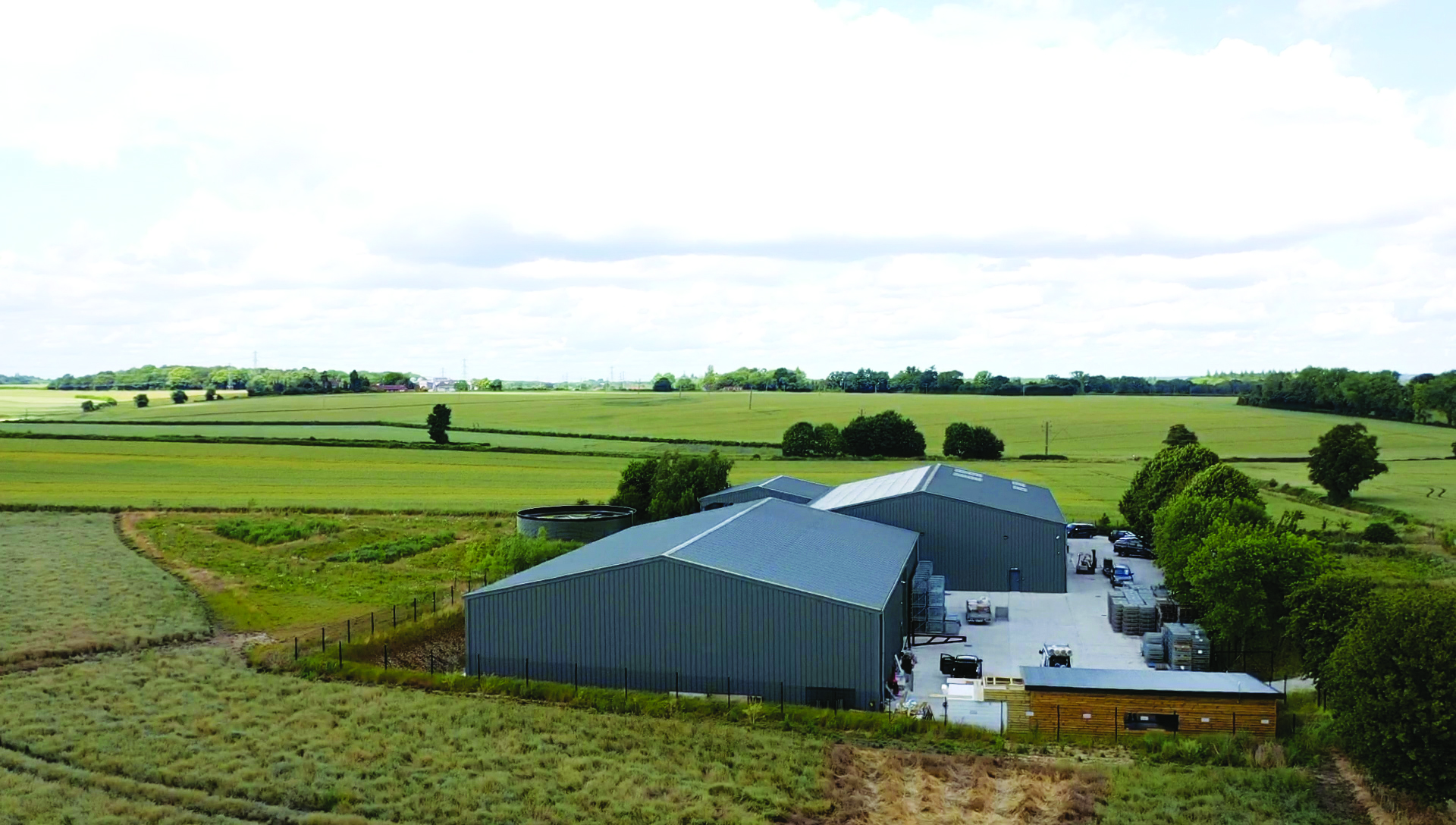
Crondall, Hampshire
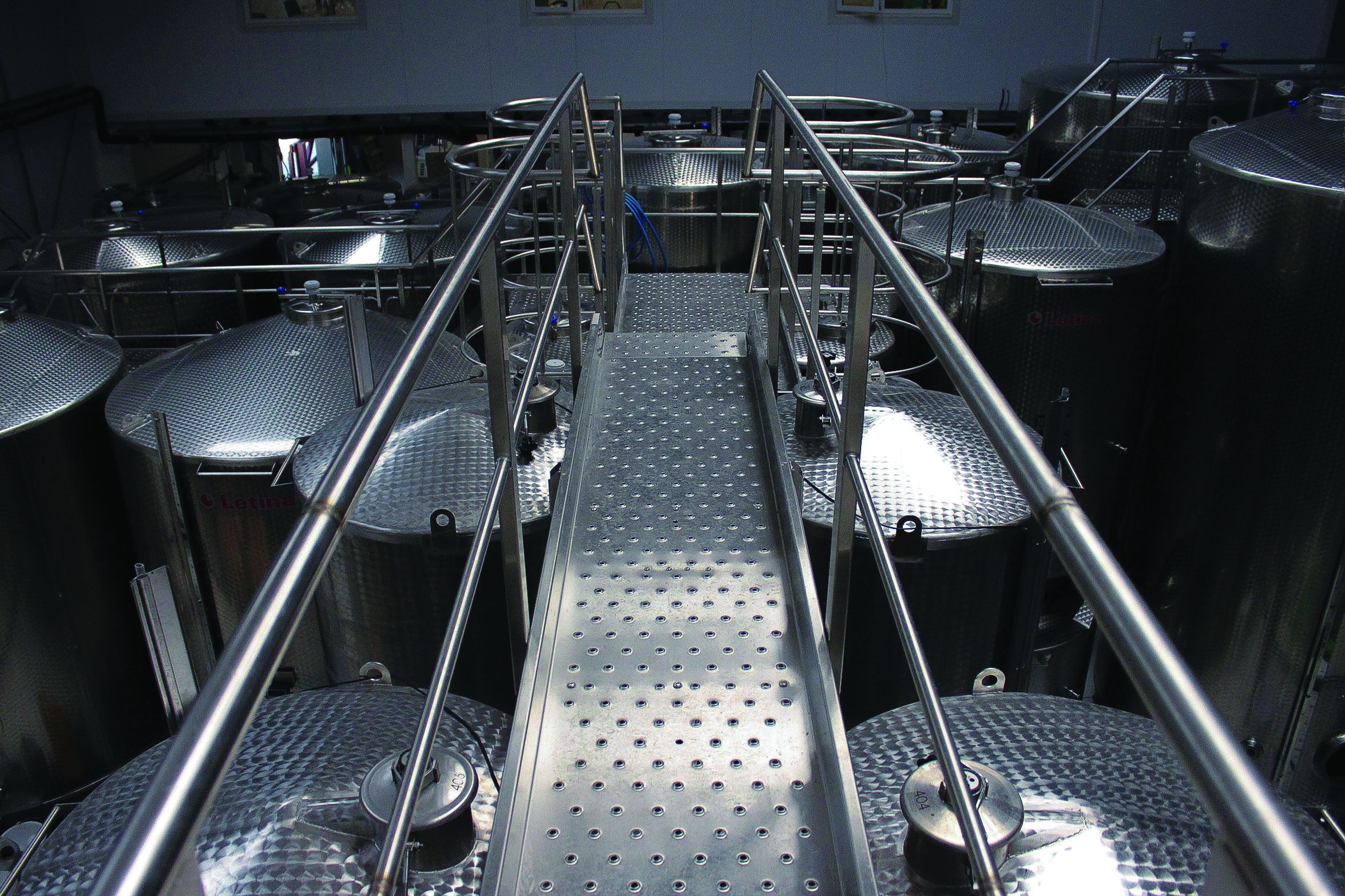
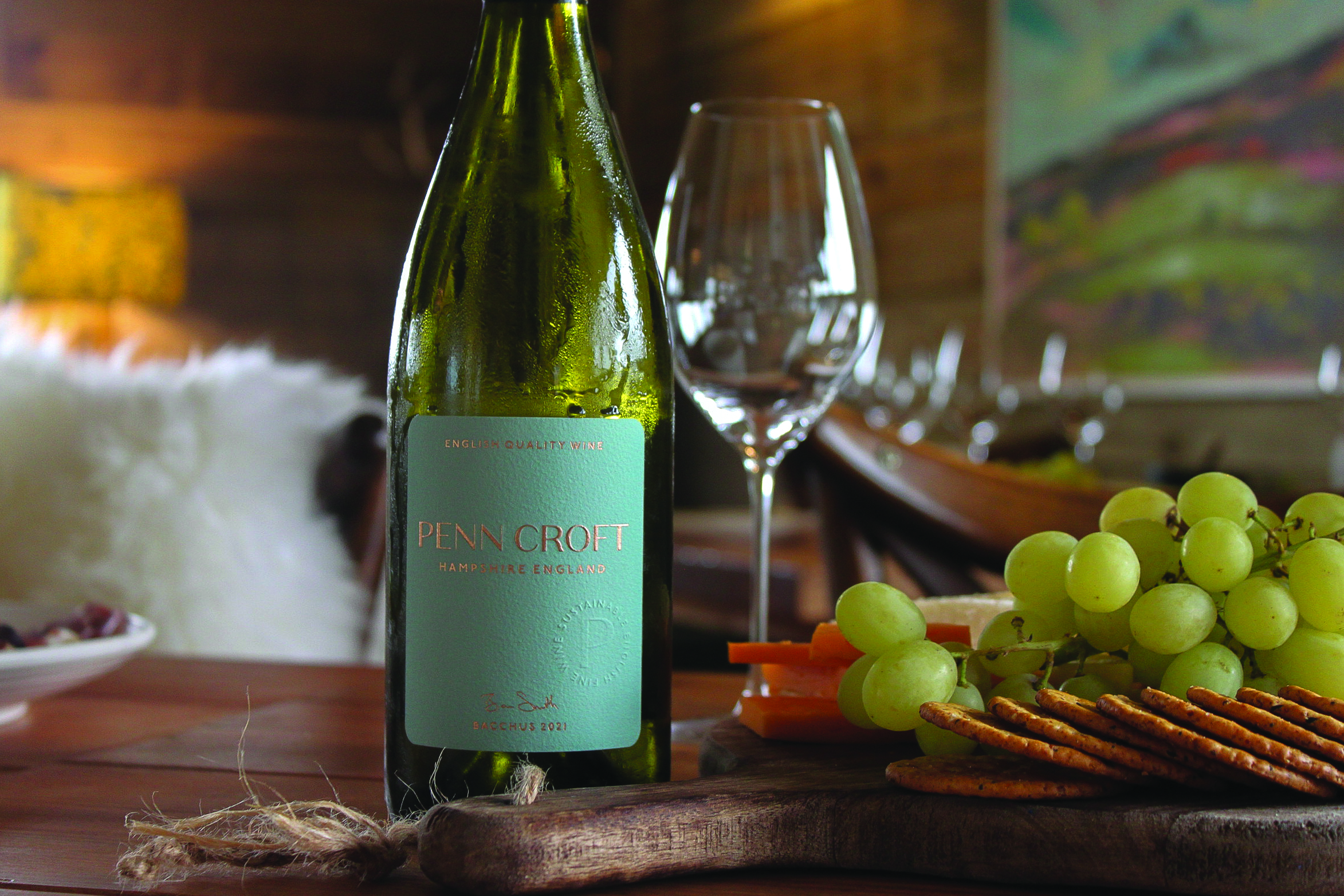
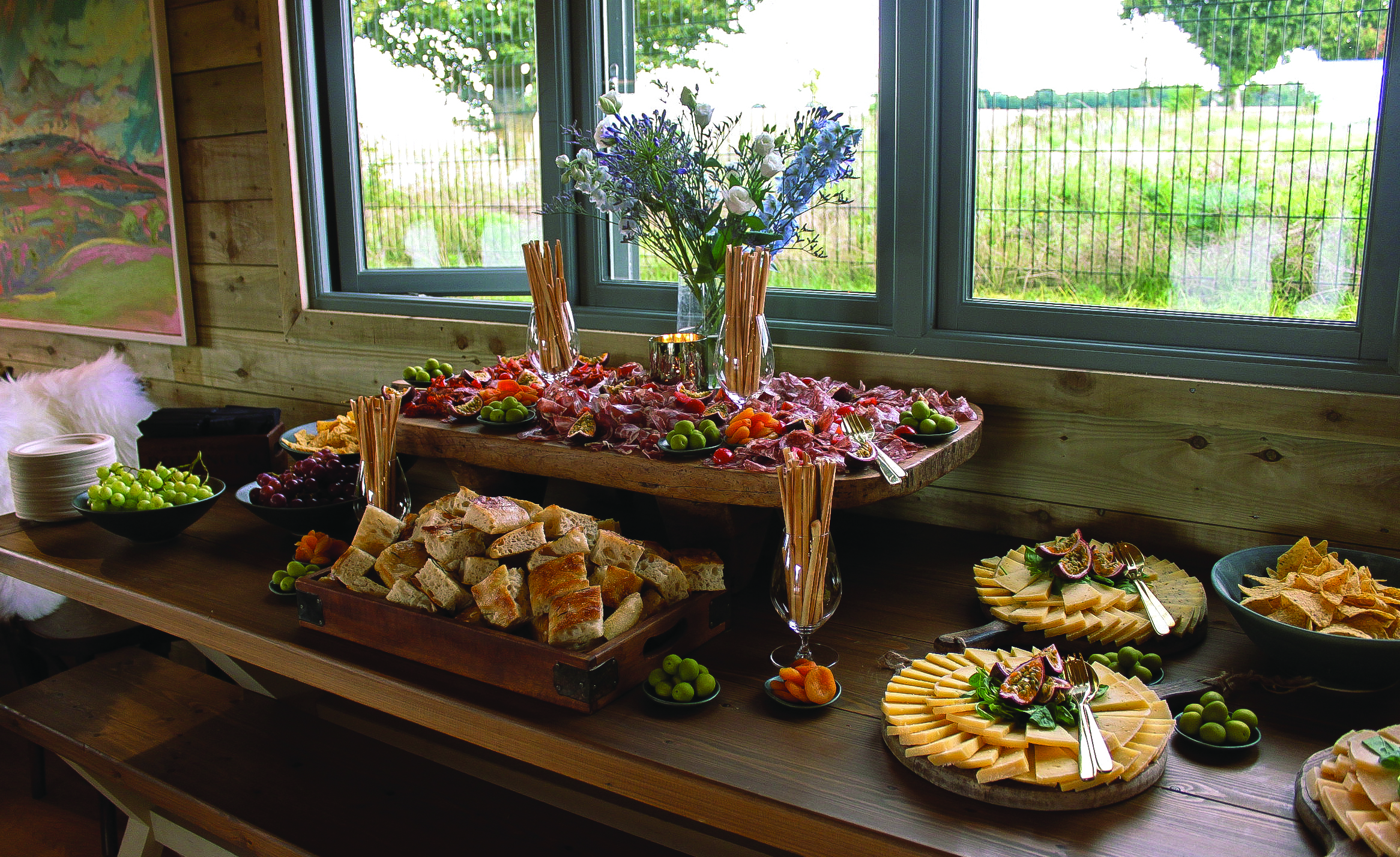
Cellar Door


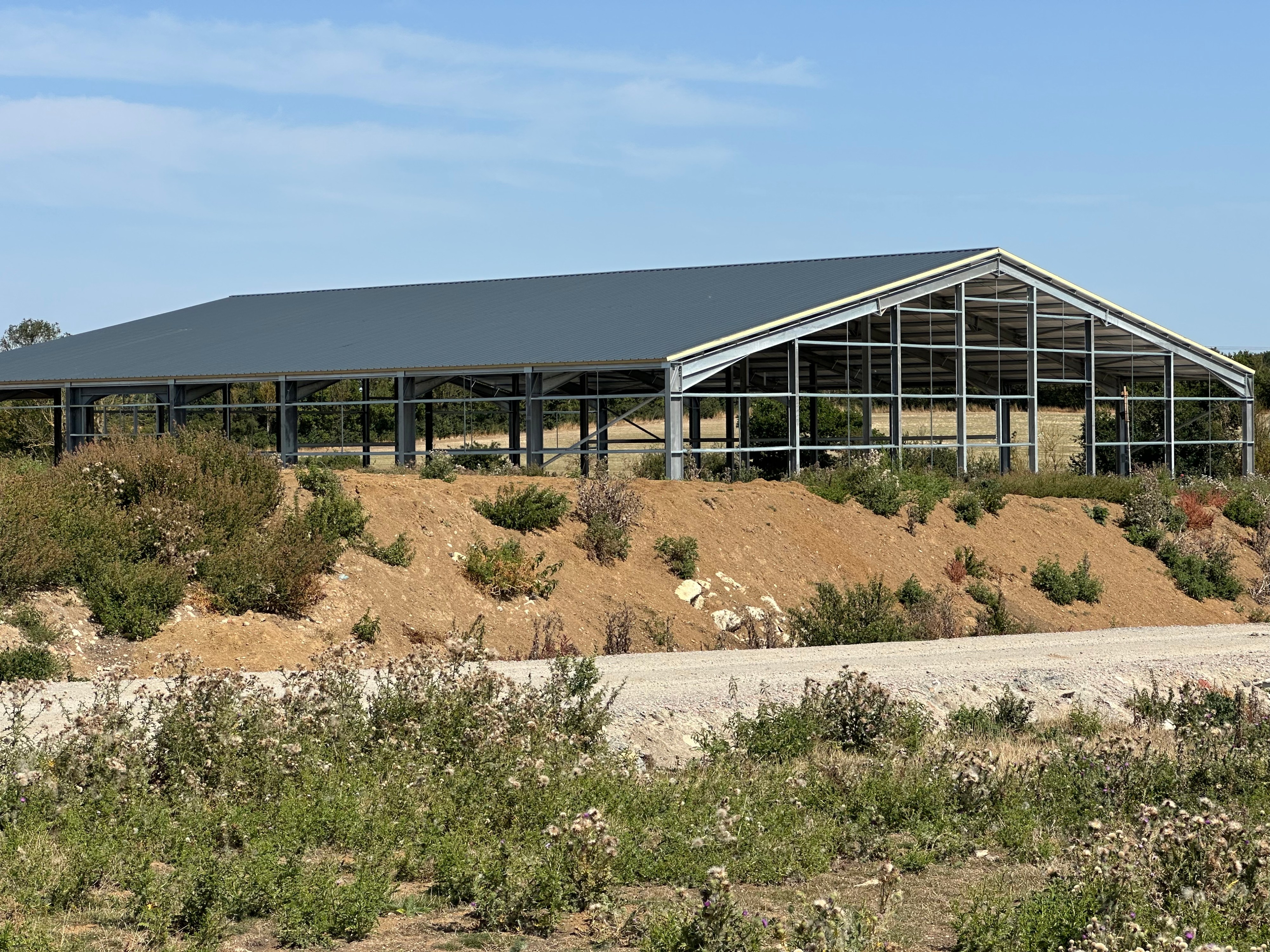
Construction of the new winery at Maldon, Essex




